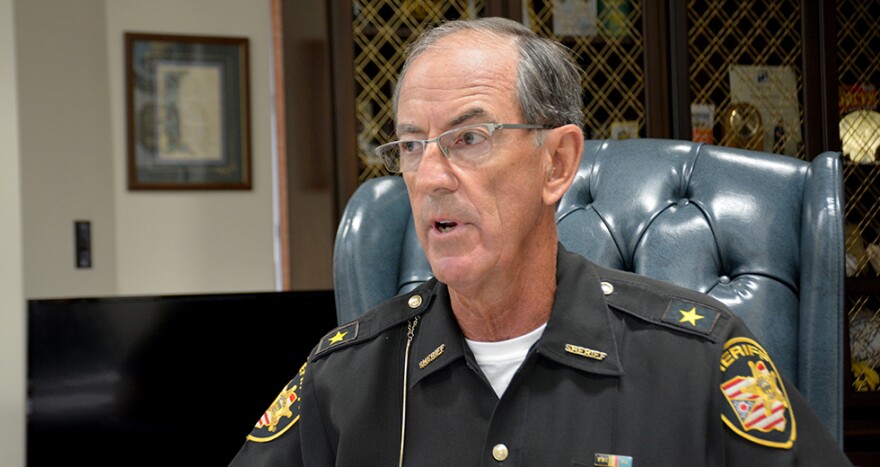As part of our series Unsettled: Immigration in Ohio, we hear from Lake County Sheriff Daniel Dunlap. A Painesville councilman said he believed a change in the Sheriff’s practice of reporting some arrests to immigration authorities is what prompted similar city action.
But the Sheriff says he didn’t really change anything:
SHERIFF DANIEL DUNLAP: “All that we have done is notify ICE officials when appropriate about people who have violated the law, and generally have been arrested. This idea that the police are going into local communities heavy-handedly searching for illegals is a bunch of baloney. Last 12 months we’ve reported about four people to immigration. We haven’t gone and found them, they have come and found us. They crash their cars into innocent people, had no driver’s license, no insurance. My first really serious brush with an illegal immigrant is the guy who killed Margaret Kostelnik on Ravenna Road here a couple years ago.”
GANZER: “What do you think, then, about this reaction that you’re seeing? If that’s the case, that the deputies are not looking for anybody who’s here undocumented, or illegally, that there is this perception within the community that they think anybody in a uniform is going to get them?”
DUNLAP: “People like to play hero, and they’re going to trump up and do all kinds of things—maybe that’s a bad word. But they’re going to puff up in front of the city council and say how evil it is, and how they’re going to protect people. Our job as policemen is to protect people. On the other hand we’re going to do our job when we have to. We’re going to report people who are violent offenders, who are here illegally. And the one man that we had that we did call ICE about who crashed into a car on North Ridge Road in Perry, had been deported seven times. Seven. Painesville’s not full of bad Latinos or any other. But we have a nuclear power plant nearby. It does not make me a federal agent, or my men and women federal agents, when they cooperate with Homeland Security, and I try to identify people who might be a threat to the nuclear power plant.”
GANZER: “I think what I’ve heard from a lot of people, that they say the climate around Painesville has degraded; that even if there are not crack-downs or raids like Painesville saw in 2007, for example, there’s a feeling of more pressure, more targeting. How does that make your job more difficult, as a law enforcement officer?”
DUNLAP: “If people deal with the real facts of things—I’ve got calls that ‘your deputies did this, or your deputies did that’ and I say let’s look into it, honestly. I’ve met with the HOLA people and others, and most times it’s resolved by them knowing all the facts. I try not to assume one side of the story, and I listen to people. And that guy that called all revved up about the whole thing and what the police are doing the other day, I said slow down, I’ll listen to you.”
GANZER: “The President has said some strong things—you’re not the President, and I’m not putting his words in your mouth—but it does seem to have caused strong reactions from both sides of the political spectrum. How do you see that affecting Lake County, and affecting your work and your deputies’ work, if at all?”
DUNLAP: “My basic beliefs are, the country will be in bad shape if everybody only obeys the law that they agree with. And the sheriff should not be the guy who gets to pick and choose which federal rules, laws, regulations he or she obeys.”
GANZER: “So is it fair to say your primary concern is the criminal violation, secondary concern would be legal status?”
DUNLAP: “You couldn’t have said it better.”




